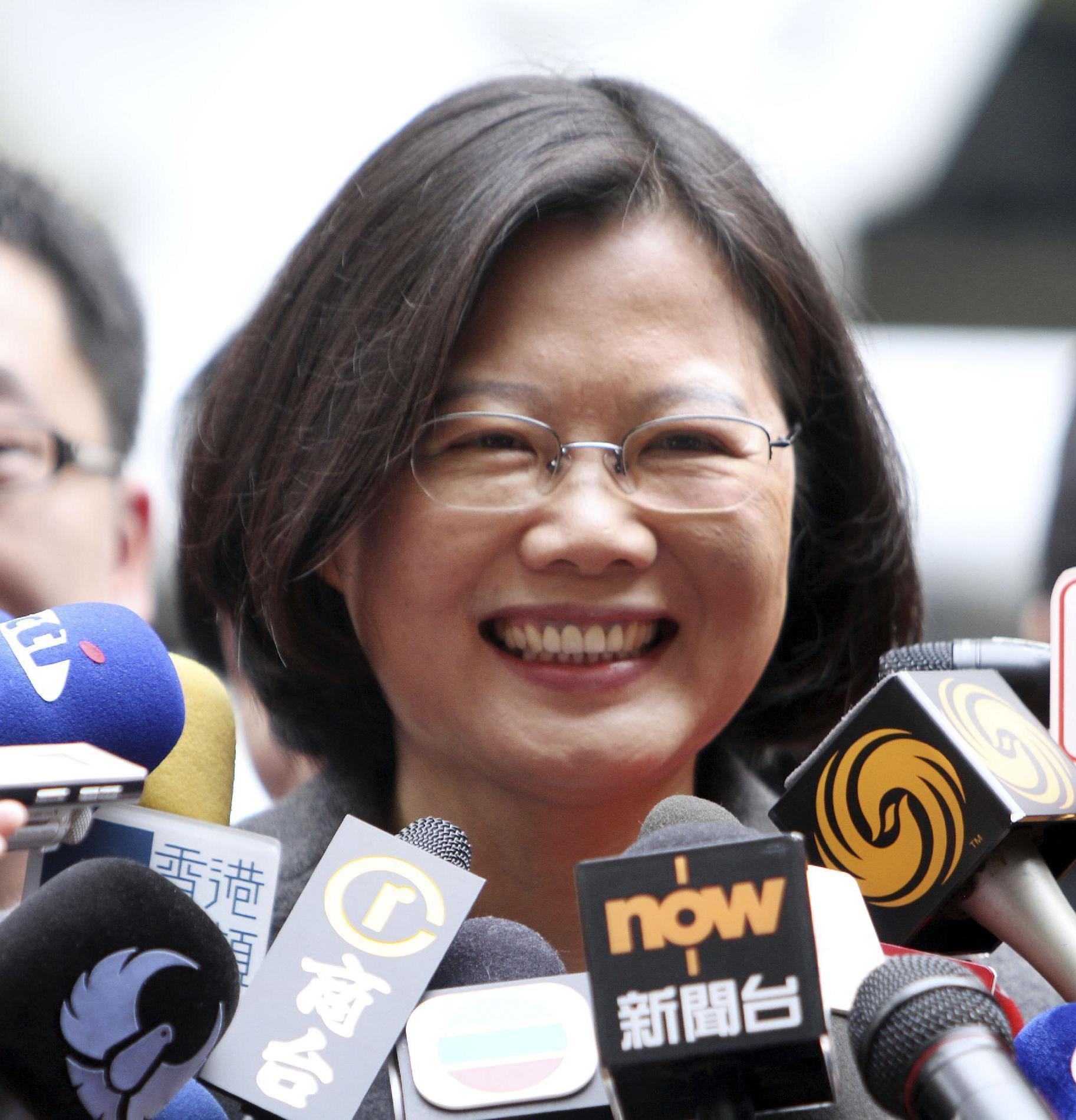Taiwan candidate seeks to reassure US on China ties
Taiwan’s opposition presidential candidate will look to reassure U.S. officials this week that victory in the January 2016 election for her party, which Beijing views with suspicion, won’t revive tensions across the Taiwan Strait. Tsai Ing-wen will want to avoid a repeat of her experience with Washington before the last vote four years ago, when the Obama administration was widely perceived as weighing in against her. The U.S., which has legal commitments to help Taiwan maintain the ability to defend itself, has welcomed improved relations between the democratic island and the communist-governed Chinese mainland. The incumbent Taiwanese leader Ma Ying-jeou has pushed closer economic ties with Beijing, reducing the potential for conflict in a regional hotspot and making Taiwan less of a sore spot in relations between the U.S. and a rising China as the two powers vie for predominance in the Asia-Pacific region.
She will want to reassure people about what a Tsai Ing-wen presidency would look like: that it would be responsible and deal with China in a way that doesn’t complicate U.S.-Taiwan relations.
Walter Lohman, director of the Asian Studies Center at the Heritage Foundation in Washington
Tsai represents the Democratic Progressive Party, or DPP. When it last held the presidency from 2000 to 2008, then-leader Chen Shui-bian, advocated for constitutional independence for the island. Beijing has claimed sovereignty over Taiwan since the Chinese civil war of the 1940s, and has threatened to use force if it seeks independence. Tsai has a milder stance and says she wants to maintain the status quo in relations. She is on a 12-day, six-city visit to the United States, and will have a chance in an address to a think tank Wednesday to lay out her vision of what that means. Tsai is better-placed to win the election this time around. With his second and final term drawing to a close, Ma’s popularity has plunged, and his Nationalist Party, also known as the KMT, fared badly in local elections in November. It is unclear who will be its presidential candidate.

Asia-Pacific